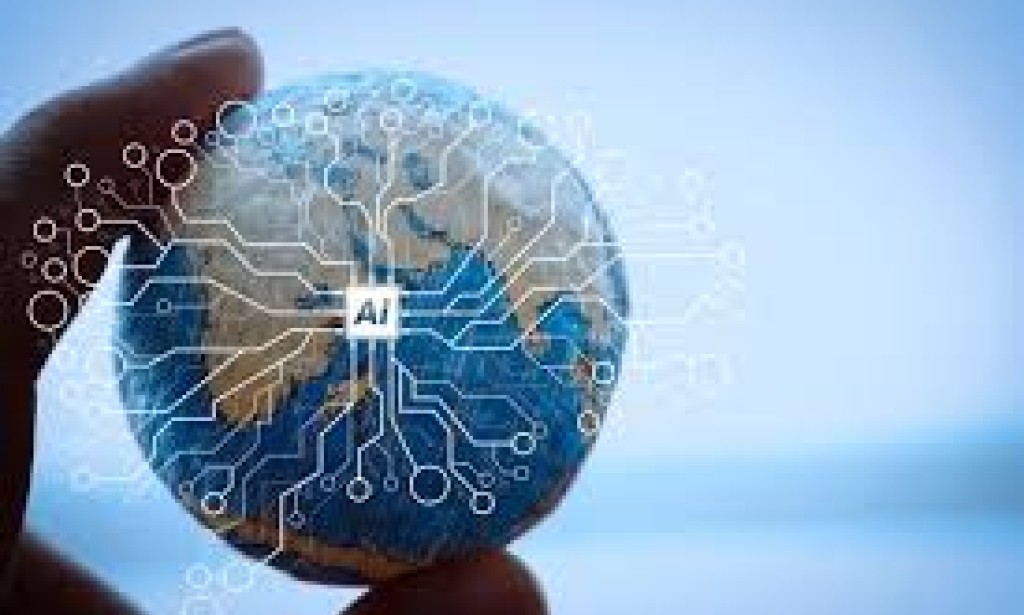1. Introduction to Blockchain and AI
Blockchain is a decentralized, immutable ledger technology designed to enhance transparency and security in digital transactions. On the other hand, artificial intelligence focuses on creating systems capable of simulating human intelligence, including learning, reasoning, and decision-making.
Individually, these technologies have disrupted industries, but their combined potential is even more transformative. While blockchain ensures data integrity and transparency, AI brings advanced analytics and automation to the table. Understanding their synergy is essential for leveraging their full potential.

2. How Blockchain and AI Complement Each Other
The integration of blockchain and AI creates a powerful dynamic, addressing several limitations of each technology:
- Data Integrity for AI: Blockchain ensures that AI systems access verified, tamper-proof data, enhancing the reliability of AI outputs.
- Transparency: AI’s decision-making processes can be tracked and audited using blockchain, mitigating concerns about "black-box" AI models.
- Decentralized Intelligence: Blockchain enables secure, distributed AI models that can operate without centralized control.
- Efficiency and Automation: AI can streamline blockchain operations by optimizing tasks like transaction validation and resource allocation.
This collaboration strengthens trust, scalability, and operational efficiency across various applications.

3. Applications of Blockchain and AI in Industries
The convergence of blockchain and AI has catalyzed innovation across numerous sectors:
- Finance: AI-powered blockchain systems are transforming fraud detection, risk assessment, and algorithmic trading.
- Healthcare: Secure patient data sharing on blockchain enhances AI-driven diagnostics and personalized medicine.
- Supply Chain: Blockchain ensures traceability while AI predicts supply chain disruptions and optimizes logistics.
- Smart Cities: Integrated systems improve resource management, from energy distribution to urban planning.
- Entertainment: Blockchain secures intellectual property while AI curates personalized content.
Each use case demonstrates how the combination of blockchain and AI addresses existing inefficiencies and unlocks new possibilities.

4. Challenges and Limitations of Blockchain and AI Integration
Despite their potential, blockchain and AI face significant challenges when integrated:
- Scalability: Blockchain's computational requirements can hinder real-time AI applications.
- Interoperability: Ensuring seamless communication between blockchain platforms and AI models is complex.
- Energy Consumption: Both technologies can be resource-intensive, raising concerns about sustainability.
- Data Privacy: While blockchain secures data, combining it with AI may introduce new vulnerabilities.
Addressing these challenges requires ongoing innovation and collaboration among stakeholders.
5. The Future Potential of Blockchain and AI
The integration of blockchain and AI holds immense potential for the future:
- Autonomous Systems: AI-driven smart contracts on blockchain can enable self-executing systems in finance and beyond.
- Enhanced Cybersecurity: Blockchain can safeguard AI systems from tampering, while AI strengthens blockchain security protocols.
- Global Inclusion: Decentralized AI systems powered by blockchain can bring advanced technologies to underserved communities.
- Advanced Analytics: AI can analyze blockchain transaction data to uncover trends and insights that were previously inaccessible.
These innovations promise to redefine technological possibilities and create smarter, more secure systems.

6. Ethical and Regulatory Considerations
The adoption of blockchain and AI raises ethical and regulatory challenges, such as:
- Bias in AI: Ensuring unbiased algorithms when relying on blockchain-verified data.
- Data Ownership: Clarifying who owns data stored and analyzed using these technologies.
- Regulatory Compliance: Harmonizing global regulations to enable seamless blockchain and AI integration.
Proactively addressing these issues is crucial for fostering trust and encouraging widespread adoption.



You must be logged in to post a comment.